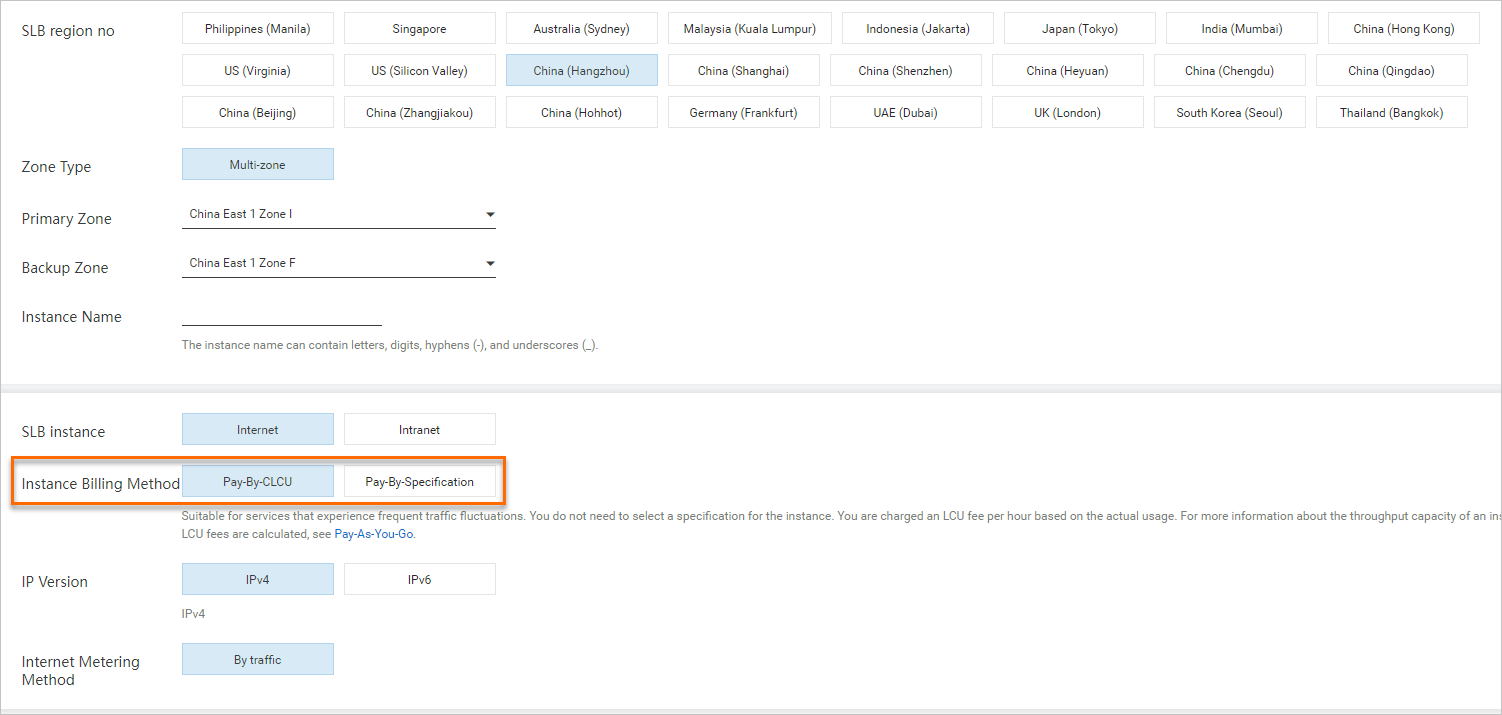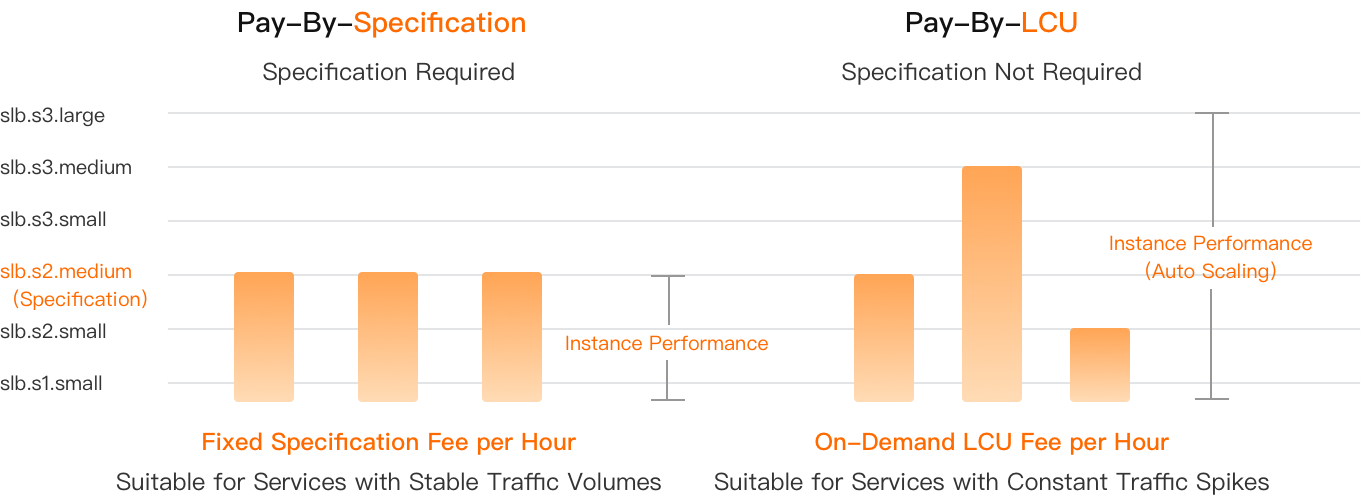Valued Alibaba Cloud customers, after Application Load Balancer (ALB) was released, many of you require that Classic Load Balancer (CLB) supports flexible billing in a similar manner to ALB.
To improve user experience, Alibaba Cloud makes the following changes to the billing of CLB:
The more flexible pay-by-LCU metering method is supported. For users whose service traffic fluctuates, the pay-by-LCU billing method reduces costs and ensures service availability at the same time.
Details and effective date
Starting September 9, 2022, the pay-by-LCU metering method is supported. If you use this metering method, you do not need to specify a specification for a CLB instance. You are charged Load Balancer Capacity Unit (LCU) fees based on the number of consumed LCUs. For more information about the definition and pricing of LCU, see Pay-as-you-go.
For more information about how to change the pay-by-specification metering method to the pay-by-LCU metering method, see Change the metering method of a CLB instance from pay-by-specification to pay-by-LCU.
Description
On the buy page, the Metering Method parameter is added. You can choose Pay-By-LCU or Pay-By-Specification.

Comparison between pay-by-LCU and pay-by-specification
The following figure is used as an example.
If you use the pay-by-specification metering method, you are charged a fixed specification fee each hour. The pay-by-specification metering method is ideal for scenarios in which traffic does not fluctuate.
If you use the pay-by-specification metering method, you do not need to specify a specification for a CLB instance. The CLB instance automatically adds or releases resources on demand. You are charged an LCU fee based on the actual resources that are consumed per hour. The pay-by-LCU metering method is ideal for scenarios in which traffic fluctuates or scenarios in which traffic changes periodically.
